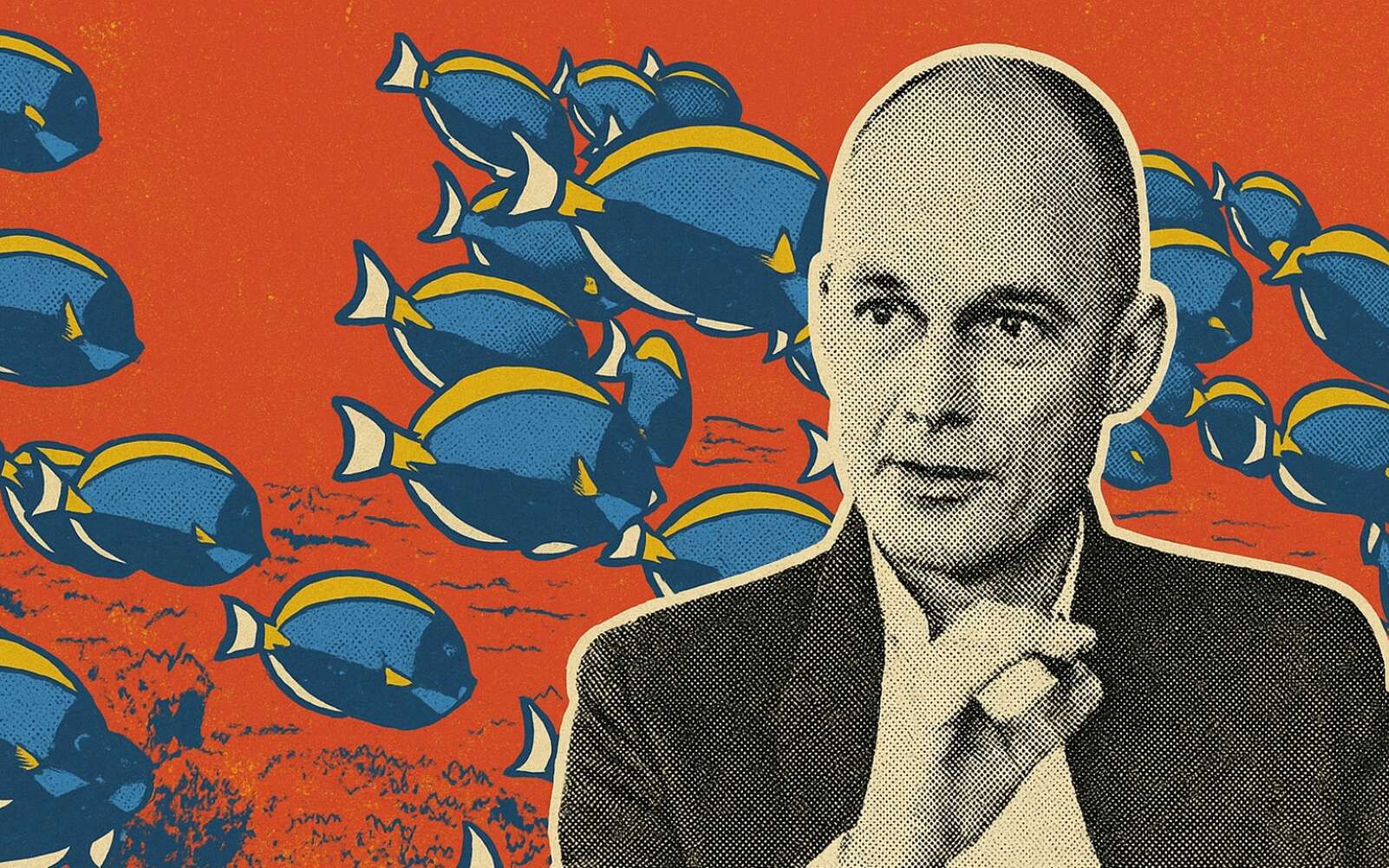Overexploitation, warming, pollution—our ocean is under threat. But Bertrand Piccard remains convinced that we still have the power to save it. The Swiss explorer and environmentalist lays out how in “The Ocean Opportunity: A Guide to Solutions for the Blue Economy,” recently published by his Solar Impulse Foundation.
As global temperatures rise, the demand for air conditioning is soaring. Experts project a 45% increase by 2050. This will remain a major issue as long as cooling is powered by fossil fuels—still responsible for 75% of the world’s heat and cooling production as recently as 2021.
But “common-sense” solutions exist, as Piccard calls them.
“At 900 meters below the surface, seawater is around 5°C. You simply pump it up through a pipe and pass it through a heat exchanger to cool coastal buildings. The water can then be returned to the ocean at shallower depths where it naturally mixes with water of the same temperature.”
Simple, yet brilliant.
Saving the ocean is possible
One such project is underway on Réunion Island, where the Saint-Pierre hospital will soon be cooled using SWAC (Sea Water Air Conditioning).
“These kinds of solutions exist but remain little-known. That’s why we want to highlight them,” Piccard says.
His Solar Impulse Foundation recently released “The Ocean Opportunity,” a guide showcasing tested, scalable, and impactful innovations. One such example is ECOncrete.
“Traditional concrete blocks used for offshore wind turbines don’t support much life. But ECOncrete’s textured, porous blocks allow algae and shellfish to colonize them, attracting small fish—which in turn attract bigger fish. Offshore wind farms can become thriving marine ecosystems.”
In Brest, France, HelioRec’s floating solar panels now cover a 250 m² surface—solving land use issues while preserving marine biodiversity.
Time to talk about solutions
“I’m tired of fearmongers who only see problems—who want us to believe it’s already too late,” Piccard says. “That’s criminal when solutions exist.”
He recalls how disheartened his father Jacques Piccard was in the 1970s, when the Meadows Report suggested degrowth as the only way forward.
“Nobody wants that. At Solar Impulse, we’re not here to stop the world—we’re here to show how it can run better. I know my father would be thrilled to see there are now many possible exit routes. That we can protect the ocean constructively.”
This optimistic outlook is rooted in family legacy.
“In my family, we’re taught never to listen to people who say something is impossible.”
His grandfather Auguste Piccard reached the stratosphere in 1931 to prove high-altitude, fuel-efficient travel was possible.
His father Jacques dove to the bottom of the Mariana Trench in 1960—not for records, but to prove life existed there and to stop the area from being used as a toxic dump.
“That same desire to highlight smart, efficient solutions is what inspired Solar Impulse. Efficiency is common sense.”
Piccard emphasizes that technology must serve efficiency, not destruction.
“If we don’t pair technology with common sense, it will lead us to disaster.”
The courage to act
Reflecting on his experience at the UN Ocean Conference (UNOC-3) in Nice this June, Piccard applauds global cooperation—but urges faster national action.
“You don’t need global agreements to block illegal fishing vessels from entering your ports. We can already track every boat in the world. A blacklist is easy. What’s missing is courage. If France did it, others would follow. It would benefit our oceans—and our honest fishers.”
Fishing inside marine protected areas is, to him,
“like killing the goose that lays the golden eggs. Fish reproduce in those zones. Let them thrive, and they’ll spill over. Fishers can catch them just outside while leaving enough inside to maintain healthy populations. That’s how you ensure a richer, more sustainable harvest.”
What we lack, Piccard concludes, is not innovation—but the courage to break the status quo.


